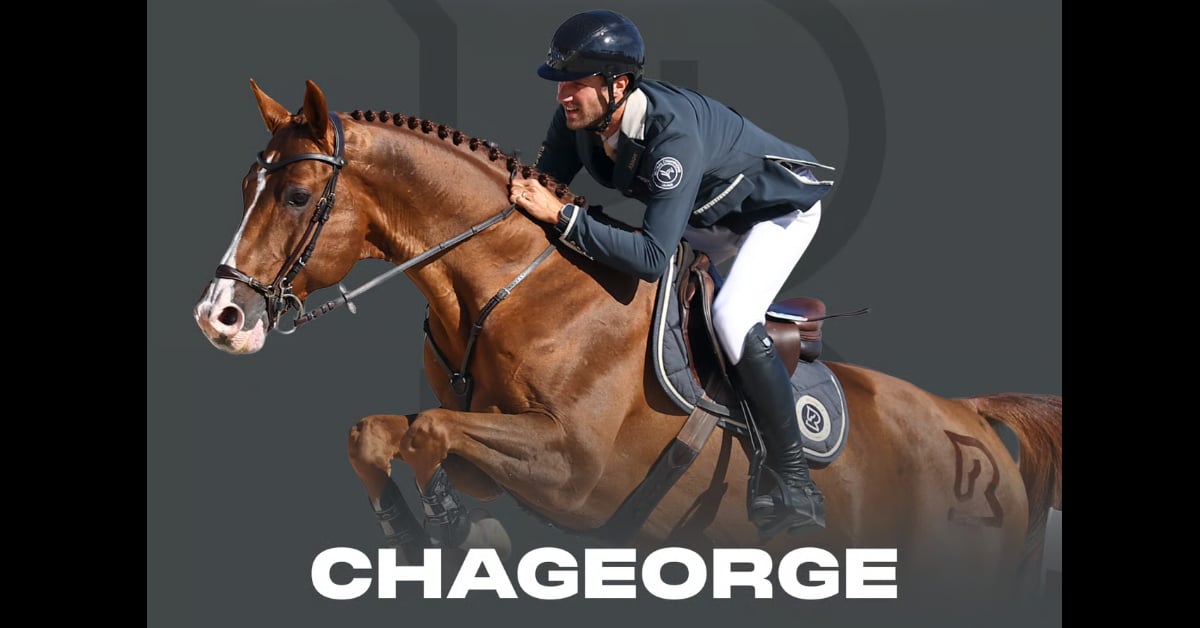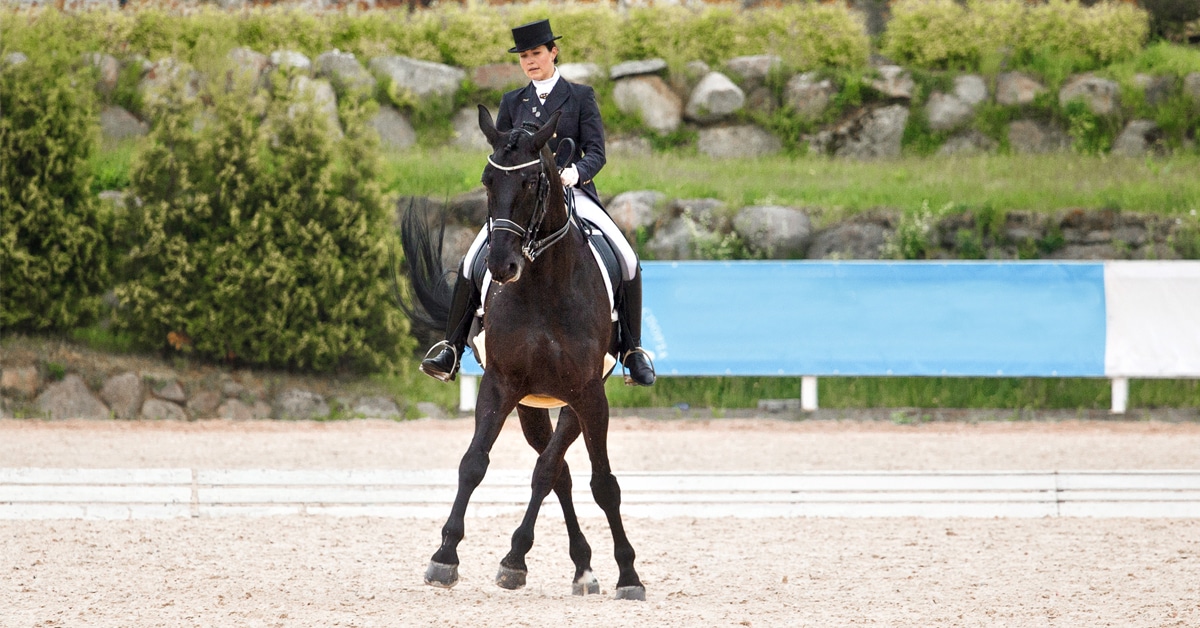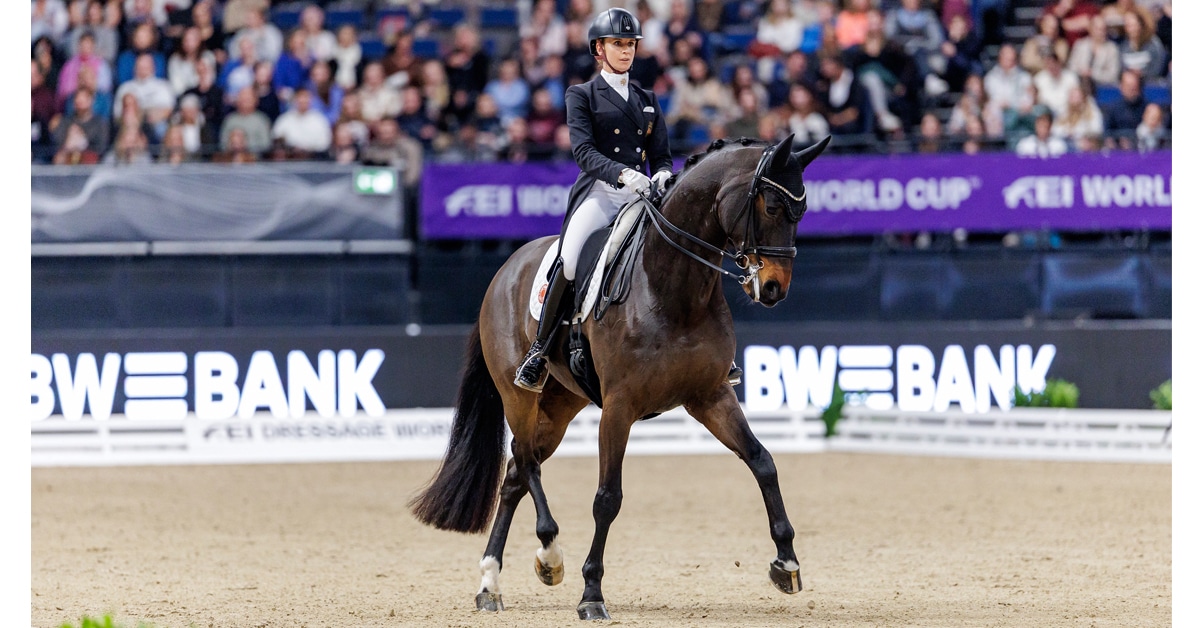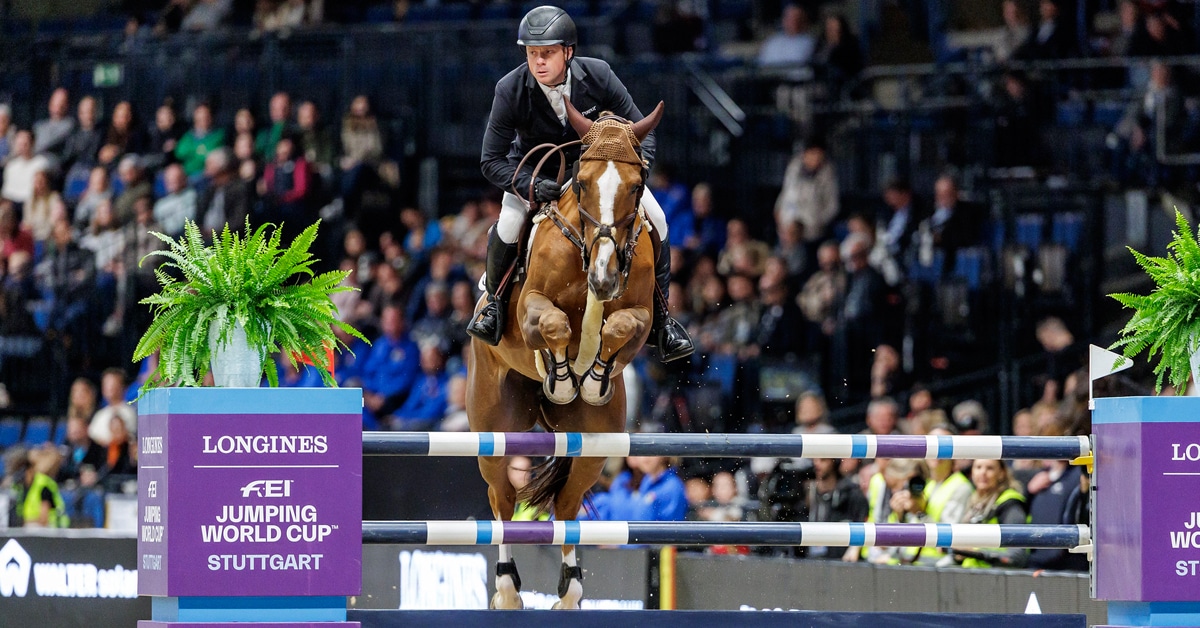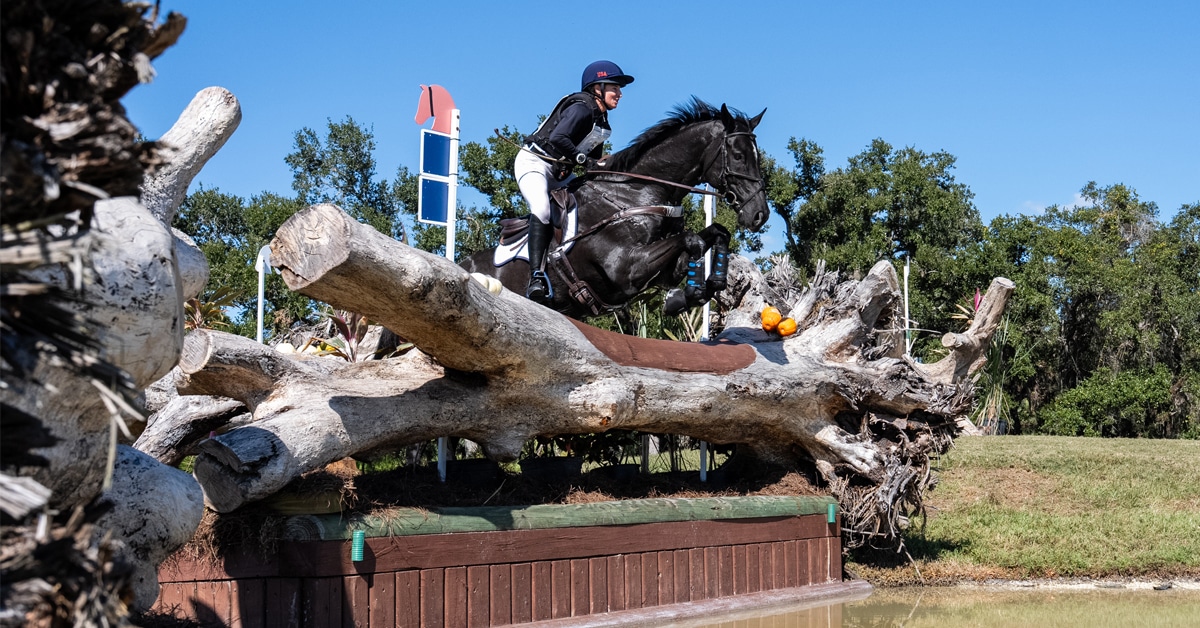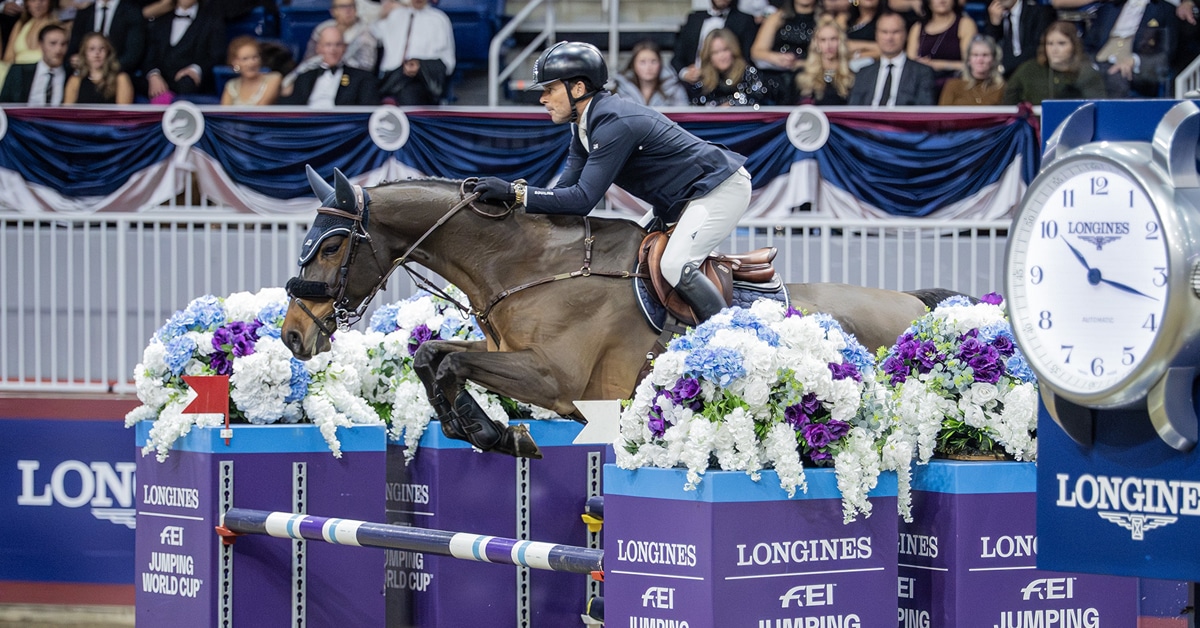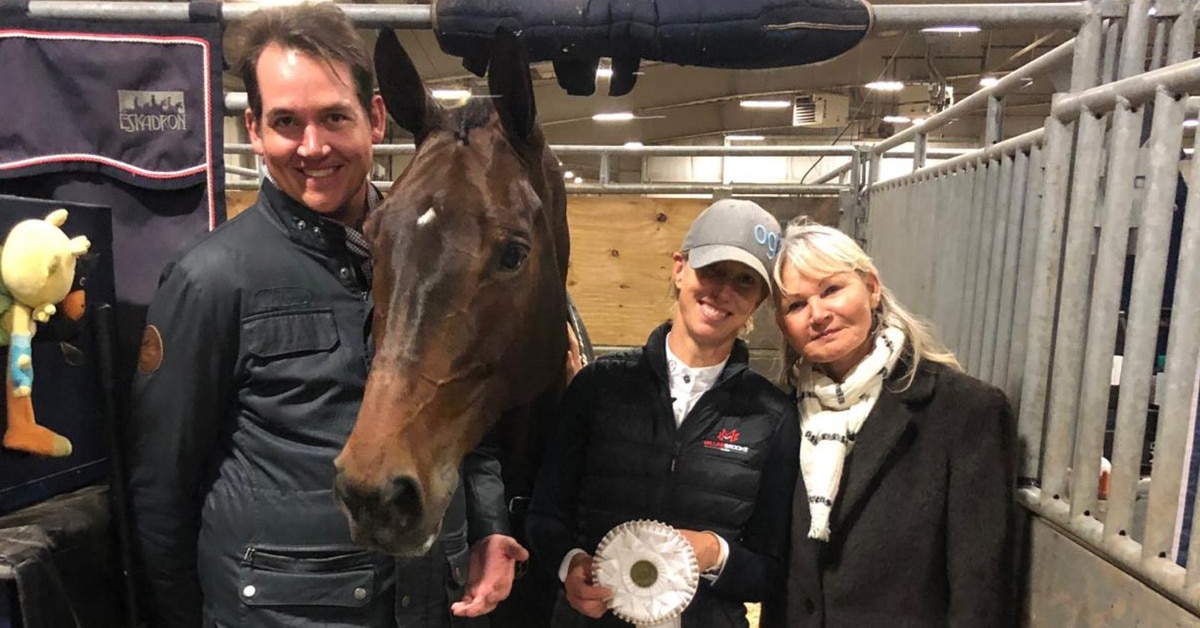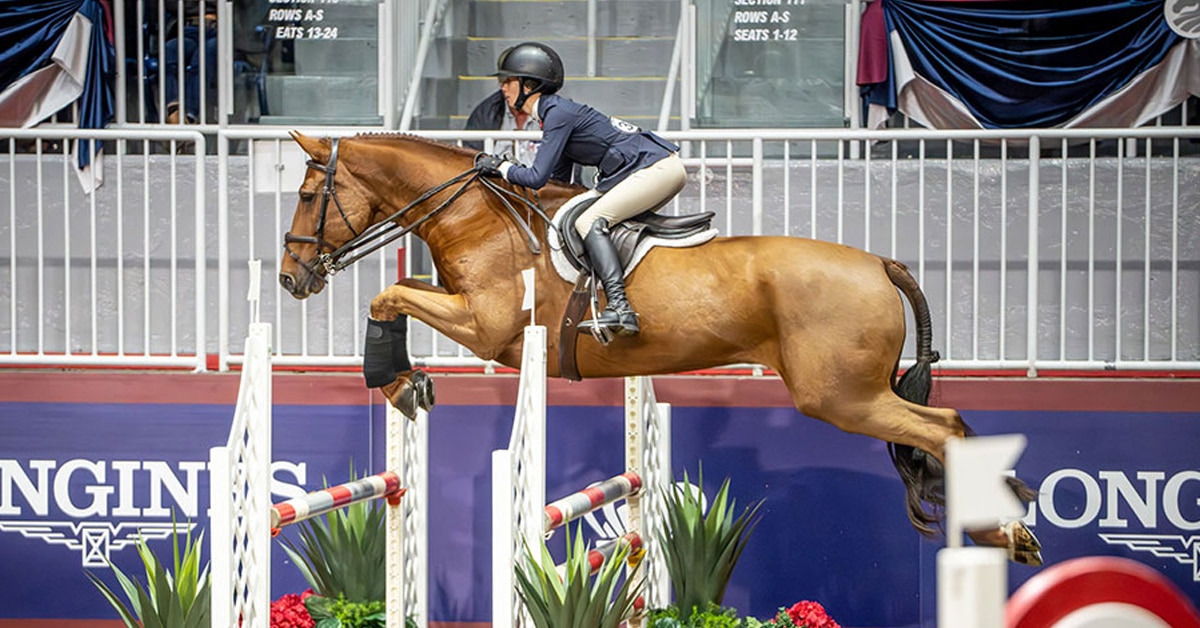Nicole Walker impressively passed a polygraph test during her long battle to reverse the consequences of the cocaine positive at the 2019 Pan American Games that cost Canada’s jumping team its Olympic place.
Walker and Equestrian Canada recently lost their appeals to the Court of Arbitration for Sport (CAS) against the Pan American Sports Organisation (PANAM Sports) decision to disqualify, after the 2019 Pan Am Games in Lima, Peru.
There was no dispute that on August 7, 2019, Walker tested positive to a metabolite of cocaine, and in sports law, disqualification of the result automatically applies, even when the consumption was not intentional and no further penalty is warranted.
However, Walker has always attributed the positive to a local tea, and stressed she was fully aware she was likely to be sampled during the Pan Ams. She was determined to clear her name and succeeded in that regard. CAS said Walker was an “intelligent, sincere and honest witness” whose credit was “not undermined” by cross-examination.
Hair-testing did not completely rule out an intentional or isolated taking of cocaine, but it was agreed she was not a habitual user ‒ Walker’s hair sample would have produced a different result if cocaine was deliberately ingested in the days prior to August 7.
Meanwhile, polygraph expert Dr. Keith Ashcroft said Walker’s score of 98.8% provided some of the best confidence levels he had ever seen. He asked her three times if she knowingly took cocaine and each time she made it clear she had not.
Another expert, Professor Uetrecht, said cocaine would hinder rather than help a jumping rider’s performance.
The 58-page CAS decision is the first time full details of what occurred in the days around the team qualifying events ‒ August 6,7 and 9 ‒ have been disclosed. Many riders, including the Canadian and US teams, stayed at the Los Incas Lima Hotel for their eight days at the Pan Ams. Neither Walker nor Team Canada had checked it was an “official” show hotel, but mistakenly believed it was because national flags and Pan Am logos were displayed in the main entrance.
CAS noted that “it would have been easy to ascertain the hotel status by enquiry of the organisers of the Games or by enquiring directly of the hotel itself. No-one chose to do that.”
Walker took eight bags of her favourite green tea to Peru, thinking she would use one a day, but as the weather was cold she drank more and ran out by the end of August 6.
At breakfast on August 7 she chose what she thought was green tea from the hotel’s buffet selection and put it in a “to go” cup, drinking it during the shuttle bus ride to the equestrian venue.
The tea bag bore a green label and was described as “mate de coca” which Walker did not realize translated as cocaine. She assumed cocaine was illegal in Peru, that it would not be allowed in the hotel she mistakenly assumed was “official,” and had not been warned by organizers that coca tea is readily available in Peru. Team vet Dr. Geoff Vernon testified he liked the coca tea so much he bought some in a local supermarket to take home, not realizing what it was.
Walker went out in Lima three times, but did not consume any beverage that could possibly be the source.
A hotel employee, Torres Malaga, was expected to testify the coca tea was supplied at the Los Incas Lima during August 2019 but changed her mind, as she longer worked there. This left Walker and Team Canada to rely on her letter. CAS was, though, satisfied the coca tea was available on August 7.
Walker accepted personal disqualification of her individual results from the August 7 and 9 competitions, but challenged their disqualification where the results applied to team rather than individual scenarios. That bid was unsuccessful, though Walker was complimented for her “careful and thoughtful” legal and factual submissions.
A cross-appeal by PANAM Sports was consolidated with these proceedings and partially upheld by CAS. There was considerable legal argument about whether the Canadian team should have been disqualified as an entity, or whether the disqualification should have applied to Walker only. This was complicated by show jumping not being a team sport as such, to which different consequences can apply. Jumping is instead a “sport in which awards were given to teams.”
Furthermore, the Pan Ams have their own anti-doping rules, based on the WADA code, to which Walker and Team Canada had agreed as a condition of entry. If FEI anti-doping rules had been in force, there would have been more discretion over which results to disqualify.
The many permutations had the same result: Walker finished 9th, 13th and 4th in the three team competitions, and by having to use their drop scores instead, Canada dropped out of contention for the Tokyo slot. (Canada remains first reserve for Tokyo out of the teams from the 2018 World Equestrian Games Olympic quota.)
Argentina would have lost its Tokyo team slot had Canada been reinstated.
Both PANAM Sports and Argentina disputed that the tea was the cause of the positive, and that even if proved if would have amounted to negligence by Walker. Argentina also argued extensively that its Tokyo place cannot be taken away, though CAS set those submissions aside as they were not pertinent to the appeals.
More News
